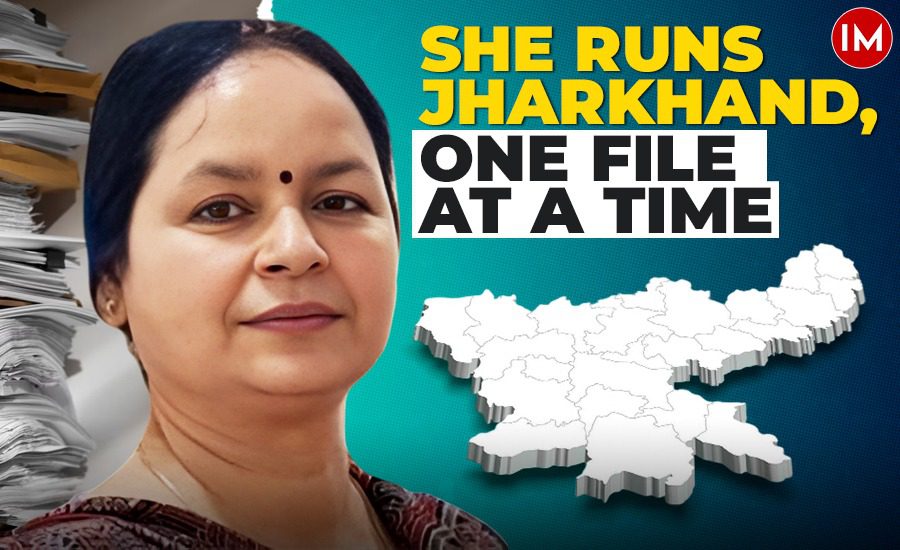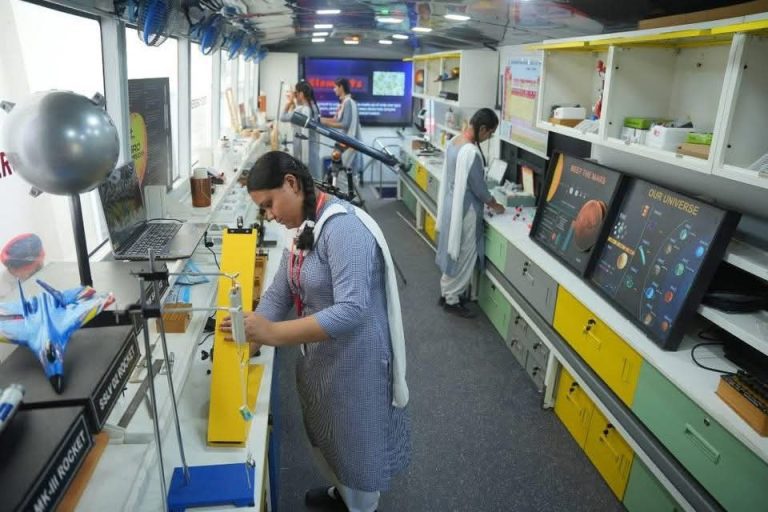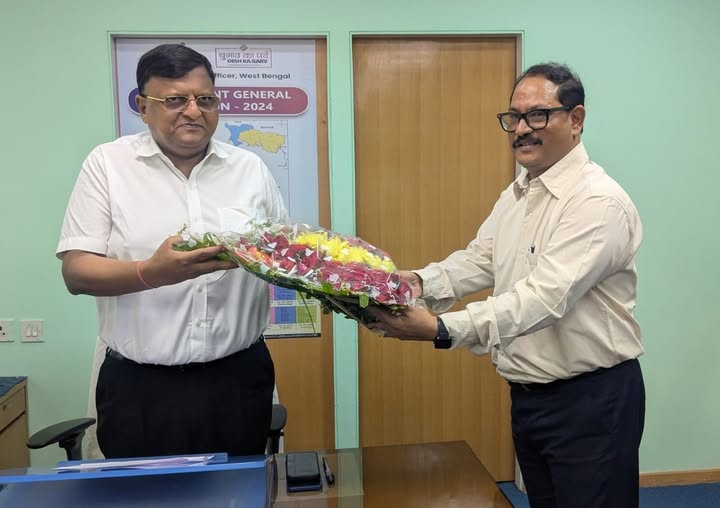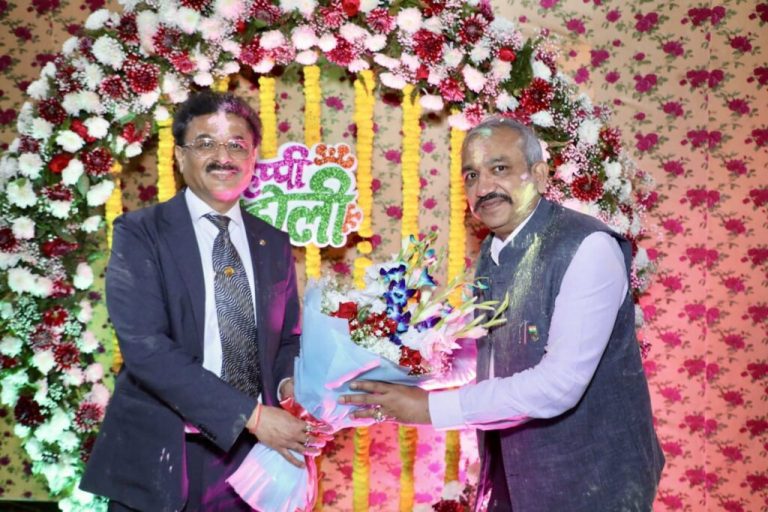In the world of Indian bureaucracy, where careers are often defined by tenure and quiet execution, Alka Tiwari is a study in layered impact. From chalking development projects in the villages of Khunti to restructuring fertiliser diplomacy with Russia and Iran, her journey spans worlds… academic, administrative, and political. And in November 2024, this 1988-batch IAS officer became the Chief Secretary of Jharkhand, the third woman to hold the post, taking charge just ahead of the Assembly elections.
She brings with her a wealth of experience from both the state and the Centre, but what sets her apart is her ability to move through systems without creating noise, yet leaving behind footprints too large to ignore.
A MIND SHAPED BY KNOWLEDGE
Alka Tiwari’s academic record is not just impressive; it’s relentless. She began her higher education in Psychology at Meerut University, where she was awarded the Governor’s Gold Medal. Not content with one discipline, she pursued Civil & Structural Engineering at the University of Manchester, UK, earning yet another gold medal in a course focused on “Management & Implementation of Development Projects.”
As if these weren’t enough, she went on to complete a Law degree from Ranchi University, participated in a program on Public Fiscal Management for Financial Advisors at Duke University, and took a short course titled “Rethinking Financial Inclusion” at Harvard. Her academic canvas reflects a wide-angle lens, one that merges theory with application, numbers with people, and policy with purpose.
A BEGINNING ROOTED IN JHARKHAND’S SOIL
Alka Tiwari’s first administrative posting was in Khunti, a place often caught between development challenges and tribal identity struggles. From there, she moved to Gumla and Lohardaga as District Collector. These were not just postings; they were live classrooms for the young officer. She was directly dealing with the grassroots, like the people, politics, panchayats, and potential.
That phase gave her a close-up view of the tribal communities, something that would shape her thinking for years to come.
FROM STATE SECRETS TO CENTRAL STRATEGY
Over the decades, her roles grew broader. She held key portfolios in Jharkhand in departments like Forest and Environment and Commercial Taxes, known to be tough and often politically tense. But it was at the Centre where her intellectual instincts truly found space to stretch.
At NITI Aayog, she worked on themes like education, tourism, higher education reforms, and financial resources, helping lay down strategic frameworks for the future. In the Ministry of Fertilisers and Chemicals, she dealt with the core of India’s food security supply chain. As CMD of FAGMIL (Fertiliser & Minerals), she didn’t just run a PSU; she turned around its gypsum business, opened conversations with Qatar, Iran, and Russia on urea supply, and signed protocols of cooperation with foreign governments.
She wasn’t just implementing policy. She was often shaping it.
MORE THAN JUST A POSTING
For over three years, Alka Tiwari served as Secretary of the National Commission for Scheduled Tribes. Here, her early experiences from Khunti and Lohardaga came full circle. Her tenure was marked by a deeper engagement with tribal rights, development frameworks, and ground implementation gaps.
This wasn’t headline material, but it was institutional work that would help structure the way India approaches indigenous rights.
JHARKHAND’S TOP POST
On 1st November 2024, Alka Tiwari was appointed Chief Secretary of Jharkhand, taking over from L. Khiangte. It was a crucial moment. Assembly elections were around the corner, and the Election Commission cleared her appointment. She was now steering the administrative ship in politically charged waters.
Her immediate focus was clear: ground governance. She began reviewing long-pending issues like the Jharia Rehabilitation Plan in Dhanbad, where fires burn beneath the earth and thousands live in limbo. She insisted that rehabilitation shouldn’t stop at relocation; it should include schools, hospitals, jobs, roads, and training. At Bokaro, she ordered SAIL to return 757 acres of unused forest land and ensure local employment and ecological responsibility.
She didn’t chase cameras, but her decisions reshaped lives.
FROM SAINIK SCHOOL TO SHRAVANI MELA
In Koderma, she initiated the expansion of Jharkhand’s second Sainik School, alongside improvements in water, sanitation, and child health services.
When it came to Shravani Mela, one of the state’s largest religious congregations, she introduced QR-code-based grievance redressal systems and reviewed everything from traffic flow to temple logistics.
Big reforms, micro details. Both mattered equally.
A HOME OF BUREAUCRATS AND SHARED LEGACIES
Her professional life is mirrored in her personal one. Alka Tiwari is married to Dr. D.K. Tiwari, a 1986-batch IAS officer and former Chief Secretary of Jharkhand. Today, he serves as the State Election Commissioner. The administrative acumen doesn’t stop there. Her brother-in-law, Rajendra Kumar Tiwari, also served as the Chief Secretary of Uttar Pradesh.
It’s a family of technocrats who’ve seen the system from the inside and shaped it quietly but significantly.
UNTIL SEPTEMBER 2025 AND BEYOND
Alka Tiwari’s tenure as Chief Secretary is expected to continue until her superannuation on 30 September 2025. That leaves her just over a month to make some of the most critical decisions the state will face in the run-up to the next political transition.
She doesn’t raise her voice in press conferences. She doesn’t dominate social media. But her work is slowly rewiring the way governance functions, from Dhanbad’s minefields to the decision rooms of Ranchi.
Her story is not one of flash or flair. It’s one of structure, depth, and scale. And in the often chaotic world of Indian bureaucracy, that might just be the most powerful way to lead.



































